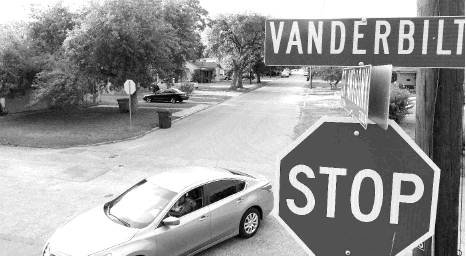ANOTHER VIEW
For equity’s sake, a city budget that’s fair
by Ron Nirenberg
You deserve a city government that listens to you, respects you and treats you fairly, no matter who you are or where you live in our city.
That means that every San Antonio resident deserves to live in a neighborhood with well-maintained streets. Providing infrastructure of equal quality to everyone is a simple matter of fairness.
But that’s not been the reality in this city. Unfairness stemming from San Antonio’s early growth patterns has shortchanged some areas of town across several generations.
As the city developed decades ago, official development policy segregated different areas of town along racial lines with different rule, and San Antonio grew with disparity in street quality and other basic services. Those trends were accompanied by vast disparities in economic opportunity, education and even health outcomes.
This inequity cannot be ignored. It must be addressed.
The situation snowballed over generations, making San Antonio one of the most economically segregated cities in the nation. As long as this unhealthy reality persists, it drives development into certain areas, while leaving long-neglected parts of town to continue falling behind.
These are uncomfortable truths. But with leadership today, we can reverse these dynamics and improve all of San Antonio.
A better balance of street maintenance will make previously neglected neighborhoods healthier for residents and responsible development. This need-based funding will lead to more balanced growth, spreading traffic more equitably along with infrastructure. That leads to more economic opportunity, better community health and a stronger city.
It isn’t a coincidence that the neighborhoods with the poorest street conditions are inhabited by the city’s poorest residents.
The proposed fiscal 2018 city budget will begin to address this inequity. The move is long overdue.
The budget would dedicate additional resources to bring dilapidated and crumbling streets in the neediest parts of town up to parity with other neighborhoods. This means focusing resources where they are most needed to make sure that it doesn’t matter who you are or where you live in San Antonio, you can expect the same high standards from the city government.
The budget includes $99 million for street maintenance. Of those funds, $64 million would continue to maintain streets in all parts of town at the same levels as last year in rough proportionality, meaning each City Council district would get about the same level of funding from this pool.
But an additional $35 million, gained from savings achieved in completed bond projects, would address conditions in the areas with the worst streets. City Council Districts 1, 2, 3, 5 and 10 have been identified by city staff as the areas with the most streets in below-average condition, and the additional funding would be directed to bring streets in those districts up to par.
Ensuring that the entire city enjoys quality-of-life basics equally has the potential to increase property values in previously underserved areas, generating more tax revenue in the long run and attracting investment to these areas.
We make policy by setting a budget. This is the hard work City Council must do. Equity is implementing the promises that politicians make to voters when they walk around neighborhoods and tell residents they deserve better. We need all parts of town to be economically healthy.
The disparities will not change overnight. It is going to require several budget cycles of funding in this manner, and it could take 10 to 20 years to effectively change some of these conditions.
As we build wealth in communities, we will not turn our backs on rough proportionality, and we will continue funding street maintenance in every part of the city.
But the status quo that maintains systemic inequality is unacceptable.
Ron Nirenberg is mayor of San Antonio.

